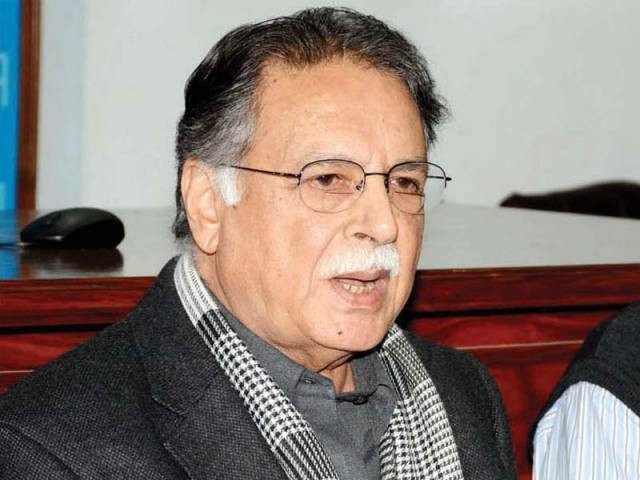Pervaiz Rashid. PHOTO: FILE
ISLAMABAD:
The Senate on Sunday witnessed heated debates on the proposed 27th Constitutional Amendment Bill, with the Treasury hailing it as a historic step towards strengthening the constitutional framework, enhancing judicial transparency and ensuring inclusive representation.
But opposition members rejected the proposed amendment, arguing that it would shake the foundations of the constitution and undermine the independence of the judiciary.
Participating in the debate, senior PML-N leader Senator Pervaiz Rashid said that the struggle for judicial independence in Pakistan has always been led by political workers and democratic forces rather than the judiciary itself.
Appreciating the amendment, he said that judicial independence must not translate into unaccountable authority. Senator Talha Mahmood of the PPP termed the amendment as a timely reform to strengthen the state structure amid internal and external challenges.
Senator Dr. Afnan Ullah Khan of the PML-N criticized opposition parties for politicizing the debate and urged them to participate in committees rather than boycott legislative work.
In response to points raised by some legislators, the leader of the Parliament in the Senate Ishaq Dar clarified the historical background of the reforms.
He said the concept of a federal constitutional court was first conceived between 2002 and 2006 during consultations between PPP former chairperson Benazir Bhutto and PML-N chief Nawaz Sharif, later formalized in the Charter of Democracy (CoD), which was signed in London on 13 May 2006.
He said the idea was endorsed by all major political leaders, including Maulana Fazlur Rehman, Asfandyar Wali Khan and Imran Khan, during subsequent follow-up meetings. “This is a shared national vision – shared ownership by all political forces,” he said.
Other members Syed Ali Zafar, Faisal Javed, Mohsin Aziz, Noorul Haq Qadri also spoke on the occasion and opposed the constitutional amendment. Addressing the House, PTI Senator Ali Zafar outlined “five points” which he said formed the spirit of the 1973 Constitution and were now “punctuated” in the proposed 27th Amendment.
The first, he said, was that Pakistan was a federation of autonomous provinces. Second, the elected parliament had authority but was bound by the constitution.
Zafar said the third point was the fundamental rights therein, with courts formed to protect and implement them.
The fourth pillar of the constitution, he added, was an independent judiciary to protect people’s rights and guarantee democracy, while the fifth was civil supremacy.
“If you change this balance of five pillars even slightly through an amendment, the entire constitution will be shaken and may result in great chaos,” Zafar warned.
On Sunday, the Senate also unanimously passed a resolution to recognize the enormous and lasting legacy of poet-philosopher and great thinker Dr. Allama Muhammad Iqbal on his 148th birthday.



